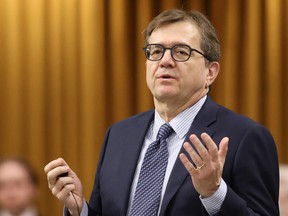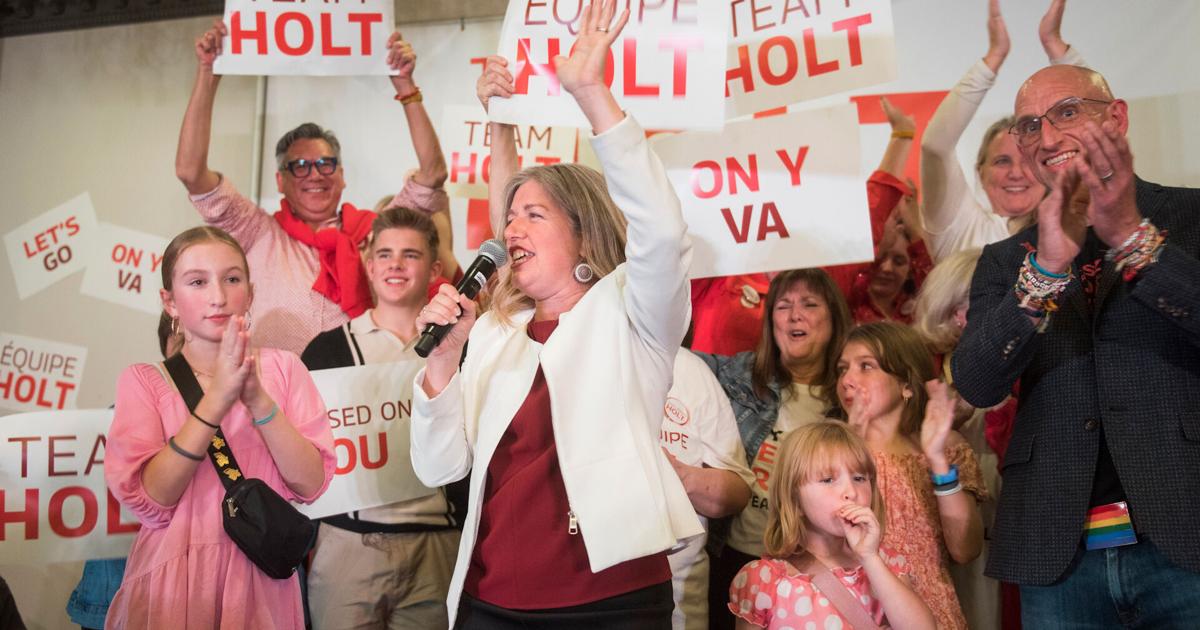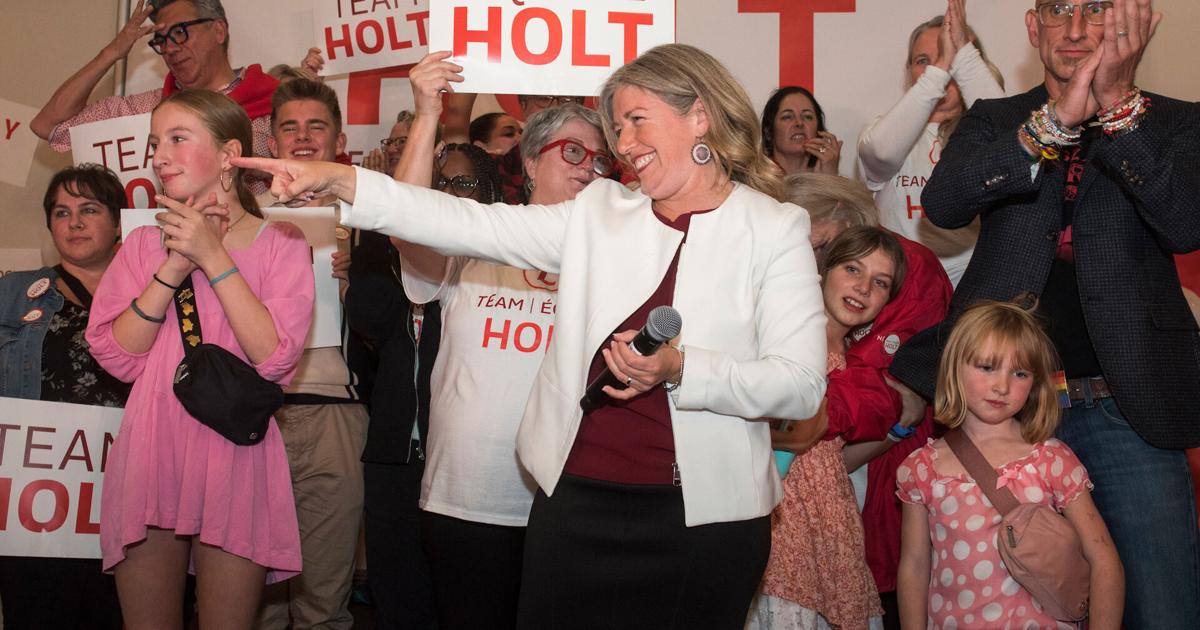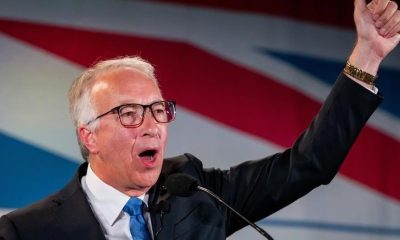Liberal jobs programs, business investment pools and economic plans all have one thing in common: they are obsessed with the skin colour and sexuality of the workforce.
Politics
Jamie Sarkonak: Identity politics baked into new Liberal ‘sustainable’ jobs plan

Wilkinson’s Canadian Sustainable Jobs Act emphasizes job creation for groups classified as diverse
On Thursday, Minister of Natural Resources Jonathan Wilkinson tabled Bill C-50, or the Canadian Sustainable Jobs Act. The bill provides a legislative backdrop to the feds’ broader sustainable jobs plan, which (if not obvious from the name) is geared at boosting job growth in the low-carbon sector. If passed, Bill C-50 would require the Minister of Natural Resources to make five-year jobs plans, adhere to various reporting requirements and assemble an advisory council to guide the execution of the plan.
Between all the bill’s talk of net-zero nestles a hint that identity will be prioritized over merit when this thing finally gets off the ground.
Like many Liberal initiatives, this plan has to involve some identity politics. In this case, the proposed law also specifies the principles that should guide this transition to a net-zero economy. One of these principles involves placing an emphasis on “the creation of employment opportunities for groups underrepresented in the labour market, including women, persons with disabilities, Indigenous peoples, Black and other racialized individuals, 2SLGBTQI+ and other equity-seeking groups.”
Additionally, when appointing members to the advisory council for this net-zero jobs plan, the minister is supposed to consider “the importance of having members that reflect Canada’s diversity — including its regional diversity — and underrepresented groups.” It’s also supposed to consider Indigenous knowledge, the subjective cultural knowledge that the Canadian government cloaks with confidentiality and considers to be equal to science.
This jobs plan won’t be released until after the legislation passes, so it’s hard to talk about specifics. What we do know is that identity is baked into its core, and that the Minister of Natural Resources won’t be thinking about Canadians as a whole when he writes out his jobs plan — he’ll be thinking of the various identity blocs that regularly form the focus of federal policy.
Unfortunately, identity-based favoritism is the norm for Liberal job creation tactics. The Canada Summer Jobs Program, managed now by Minister of Employment Carla Qualtrough, specifically awards evaluation points to employers who will employ non-white youth. Non-profits and small businesses whose leadership includes “underrepresented” identities also get funding priority. For two years starting in 2023, the program is slated to receive about $400 million from the government.
Similarly, Qualtrough also presides over the Apprenticeship Service, a wage subsidy program for apprentices in trades that doubles for apprentices that check off a diversity box. The program offers only $5,000 in wage subsidies for apprentices who aren’t diverse (read: white, straight, male and able-bodied). Anyone who identifies as a member of the following groups gets a $10,000 subsidy: women, persons with disabilities, Indigenous people, sexual and gender minorities, non-white people and new immigrants. Qualtrough, encourages employers to discriminate.
Academic jobs face a similar system. The federally-funded Canada Research Chairs program, which provides multi-year funding to top academics, is now bound by a diversity quota system. Unlike the summer jobs and apprenticeship system, the Canada Research Chairs program simply requires universities to not open certain job postings to identity groups that are over-quota. The quotas are imposed by an update to a court settlement that was specifically agreed to by the Liberals.
Business investment programs aren’t much different. Instead of creating one big program to help small businesses generally, the Liberals have opted for identity-based funding pools. These programs are relatively new — the LGBT entrepreneurship program just kicked off Thursday, getting $25 million from the feds. According to the head of the organization charged with administering the program, applicants will have to prove their sexuality or gender identity by fulfilling certain criteria and using personal references.
In 2020, the feds launched a similar program for Black entrepreneurs, which amounted to about $300 million. Another $53 million was set aside for Black-led non-profits. A similar program exists for women, which the latest government figure pins at $7 billion.
All of this is the opposite of progress. Ideally, a jobs plan would aim for increasing prosperity in the country across the board, rather than picking favourites based on immutable characteristics. If there are certain groups that are more likely to be poor, then economic programs focused on helping the poor should naturally uplift those groups and provide the “equity” that is so fervently being sought — there’s no need to pick favourites based on race, sexuality and so on, as Wilkinson and his colleagues have done.
When the Liberals talk about encouraging diversity, they tend to mean top-down measures that call for discrimination that sometimes send resumes straight to the garbage. They don’t see employees as individuals to be judged on their initiative and hard work — they see them as a walking set of identity markers, some of which are more deserving than others.
National Post

Politics
Liberals win majority in New Brunswick election

New Brunswick voters have elected a Liberal majority government, tossing out the incumbent Progressive Conservatives after six years in power and handing the reins to the first woman ever to lead the province. Liberal Leader Susan Holt spent much of the campaign rolling out proposed fixes for a health-care system racked by a doctor shortage, overcrowded emergency rooms and long wait-times. She promised to open 30 community health clinics across the province by 2028. (Oct. 22, 2024)
Politics
Susan Holt Breaks the Glass Ceiling in New Brunswick Politics

Susan Holt has made history in New Brunswick by becoming the first woman to serve as the leader of the province’s Liberal Party, a significant milestone in the province’s political landscape. Holt’s leadership victory signals a new era of representation, gender equality, and change in the region, which has long been dominated by male politicians.
Holt’s journey to the top has been one of perseverance and dedication. Before entering politics, she built a distinguished career in the private sector, where she held numerous leadership positions. Her experience in business development and public policy has equipped her with the skills needed to navigate the complex world of politics.
In a province where women have historically been underrepresented in politics, Holt’s election represents a watershed moment. Women’s involvement in leadership roles has been steadily increasing nationwide, but New Brunswick, like many parts of Canada, has seen slower progress in achieving gender parity. Holt’s rise to the top of the Liberal Party not only shatters a glass ceiling but also serves as an inspiration for future generations of women aiming for political leadership.
As the leader of the New Brunswick Liberal Party, Holt has laid out a vision of inclusivity and progress. Her policies focus on economic development, healthcare reform, environmental sustainability, and addressing social issues that have plagued the province. She has also emphasized the importance of transparent governance and creating opportunities for underrepresented communities, making her platform both modern and forward-thinking.
Holt’s leadership arrives at a time when many voters are calling for change, especially in the face of challenges like economic uncertainty and the need for healthcare improvements. She aims to bring fresh ideas to tackle these issues while ensuring that all citizens, regardless of their background, have a voice in government decisions.
Susan Holt joins the ranks of other trailblazing women across Canada who have led provincial parties and governments. Women like former Alberta Premier Rachel Notley and Ontario’s Kathleen Wynne have paved the way, and now Holt is contributing to this growing legacy of female political leadership in Canada.
Her achievement highlights not only the growing number of women entering politics but also the demand for leaders who can bring diverse perspectives to the table. In a field often dominated by entrenched traditions, Holt’s election is a step toward a more inclusive and representative political landscape in New Brunswick.
Holt’s leadership signals a broader shift in Canadian politics, where more women and diverse voices are gaining prominence. For young women across the country, her rise serves as a powerful reminder that leadership roles are within reach, even in traditionally male-dominated spheres.
With her election, Susan Holt has proven that perseverance, skill, and a vision for change can break even the toughest barriers. Her leadership will not only reshape New Brunswick’s political future but also inspire others across Canada to pursue leadership positions and continue to challenge the status quo.
Politics
Moe and Beck hold campaign events today, as parties urge early voting

NDP Leader Carla Beck has two planned campaign events today, starting the day with an availability in Moose Jaw and then later this evening attending an event in the capital with the Regina Medical Staff Association.
Saskatchewan Party Leader Scott Moe, meanwhile, will speak in Prince Albert at the start of Voting Week in the province.
Saskatchewan residents can vote for five days starting today in the lead-up to next week’s provincial election, although polls won’t be open Sunday.
The NDP and the Saskatchewan Party are urging voters to cast their ballots early.
Voters can find their polling stations on their information cards or by visiting the Elections Saskatchewan website.
Chief electoral officer Michael Boda says there are about 810,000 registered voters in Saskatchewan.
This report by The Canadian Press was first published Oct. 22, 2024.
The Canadian Press. All rights reserved.
-

 Politics21 hours ago
Politics21 hours agoA look at Susan Holt, Liberal premier-designate of New Brunswick
-

 News11 hours ago
News11 hours agoSentencing hearing continues for University of Waterloo gender studies class stabber
-

 Politics21 hours ago
Politics21 hours agoHere is the latest on the New Brunswick election
-

 Politics21 hours ago
Politics21 hours agoNew Brunswick Liberals win majority, Susan Holt first woman to lead province
-

 News4 hours ago
News4 hours agoToronto FC captain Jonathan Osorio making a difference off the pitch as well as on it
-

 News10 hours ago
News10 hours agoInequality has broad impacts on the health of Montreal children, report finds
-

 News21 hours ago
News21 hours agoPremier-designate of New Brunswick, Susan Holt, is first woman to lead the province
-

 Business11 hours ago
Business11 hours agoThomson Reuters acquires AI accounting assistant developer Materia




























